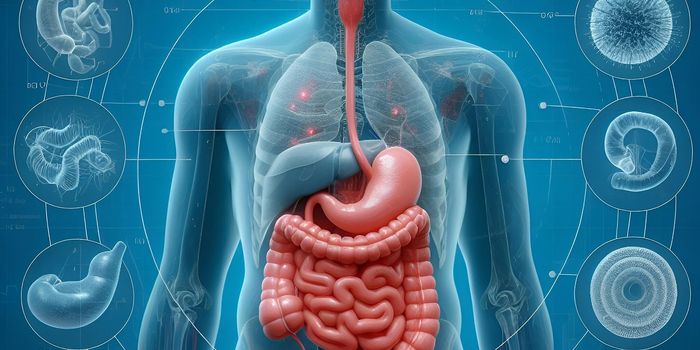The Protein ETV1 May Act as a Biomarker for Gastrointestinal Cancer
Cancer is an incredibly diverse disease. It has many types and even sub-types, with a vast range of characteristics. Some cancers even have complex genetic mutations, while others have a single defining mutation.
Gastrointestinal stromal tumors (GISTs) are an example of a cancer with one consistent mutation. In this case, it is a “gain of function” mutation that causes the c-kit signaling pathway to be constantly in the “on” state. The critical protein in this pathway is the receptor tyrosine kinase KIT, which is normally activated by stem cell factor and plays a role in cell survival and proliferation. These kinases are critical players in cancer as well, as their aberrant activation is common in many types.
Another protein, the transcription factor ETV1, was also found to play a role in tumorigenesis alongside KIT in gastrointestinal stromal tumors. Conflicting evidence suggested that ETV1 might be a promising biomarker for the prognosis of gastrointestinal stromal tumors. A team out of Nagoya University wanted to examine the relationship between KIT and ETV1 and determine if ETV1 expression had any prognostic value.
To do this, the team gathered data from 64 gastrointestinal stromal tumor patients. All but four of these had mutations affecting the c-kit pathway. Eleven patients suffered from recurrence, which the team classified as aggressive subtyping.
The team found that ETV1 was expressed at higher levels in gastrointestinal stromal tumors than in other cancers. The team classified the 64 patients from low to high risk and then examined the ETV1 levels in each. High expression was more likely to be found in low-risk patients, with aggressive tumors showing much lower ETV1 levels. Further analysis showed that high ETV1 levels corresponded to a better recurrence-free survival compared to low ETV1, with there being no difference in the overall survival rate.
Although the dataset’s size was small, this study supports the idea that ETV1 is expressed in gastrointestinal stromal tumors at relatively high levels. It also shows that it may act as a prognostic indicator for patients, with high ETV1 levels signaling a better recurrence-free survival. Another study with a larger sample size will be needed to confirm this observation. Still, this evidence helps further understand gastrointestinal stromal tumors and how we might best fight them.
The study concludes, “low ETV1 expression was associated with worse RFS and was revealed as an independent factor of recurrence in addition to conventional factors. ETV1 expression could be a predictor of aggressive malignant GISTs. An evaluation system based on ETV1 expression may help choose patients who need adjuvant chemotherapy.”
Sources: Nature Scientific Reports, ImedexCME









